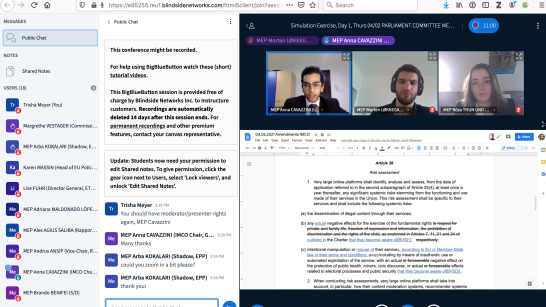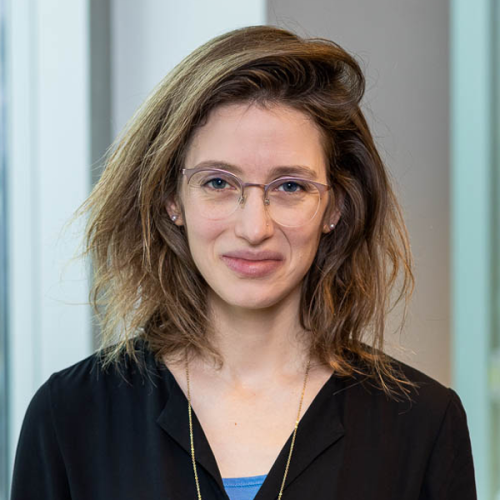
During the BSoG’s Winter School on EU Policy Making, held from 1 – 12 February 2021, the programme’s students had the opportunity to team up with their peers from the EUTOPIA university network. EUTOPIA is an alliance of six European universities, one of which is Vrije Universiteit Brussel (VUB), chosen by the European Commission in 2019 as one of the seventeen pilot projects for developing a ‘European university’.
This virtual simulation exercise put the theory of EU policy-making into practice, allowing students to gain firsthand experience of EU negotiations, rules and strategies. It was organised within the EUTOPIA learning community on ‘Europe in the World’. Students from all partner universities in the EUTOPIA alliance joined participants from the Winter School and simulated the EU ordinary legislative procedure for two days with more than thirty students online. The students took on alter-ego roles as European commissioners, national ministers, members of the European Parliament, tech executives and media and negotiated three articles of the recently proposed EU Digital Services Act.
In advance of the simulation exercise, students received their alter-ego role and simulation briefing notes, and had one briefing session with the VUB EUTOPIA simulation coordinators. Students familiarized themselves with the topic, the background negotiations and the individual position of their alter-ego, and submitted their alter-ego starting policy position prior to the exercise. Then, over the course of the two-day simulation, the students moved between plenary, European Parliament committee and Council of the EU configuration, bilateral and trilateral meetings. The media was a vital source of information for all parties involved in the negotiations and kept everyone up to speed with recent developments, via live coverage on a dedicated media channel. In a final plenary, the outcome of the negotiations (common position) was presented. At the beginning and the end of the simulation exercise, students completed an online survey to help them formulate their expectations and assess their experience.
By embedding themselves into an ongoing policy-making process, students gained firsthand and unique insights into the intricacies, twists and turns of EU politics.
 |
The European Commission's support for the production of this publication does not constitute an endorsement of the contents, which reflect the views only of the authors, and the Commission cannot be held responsible for any use which may be made of the information contained therein. |
